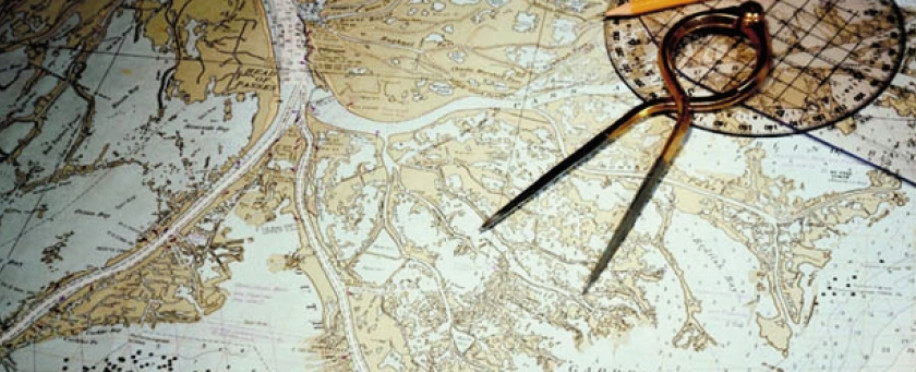Copyright © 2025 lmitac.com All Rights Reserved. Contact - Terms and Conditions - Privacy Policy - Quality Policy - Become an instructor - Vacancies - Sitemap
London Maritime Academy is a trade name for London Premier Groupversion: 2.9.0
London Maritime Academy is a trade name for London Premier Group

Posted on : 10/1/2023, 10:43:31 PM
The sailing world has had many navigation methods throughout the years, as old sailors used to follow the stars to navigate through foreign waters safely. Nowadays, navigational techniques have changed, and people rely on GPS systems, charts and maps to get them where they need to go.
Coastal navigation remains one of the most classical and timeless marine methods of navigation that every modern sailor needs to learn today. If you're interested in learning more about the fundamentals of coastal navigation, you've come to the right place.
In theory, coastal navigation is the process by which a ship on the open sea keeps track of its position about shore/coast, visible objects (such as islands or buoys), depth of the waters, and other soundings using a combination of techniques, including landmarks, plotting, celestial navigation, and dead reckoning.
One of the basic skills you need to have when you sail includes knowing objects' distances from your position and location on the nautical chart using specific landmarks that define the space and direction.
This method involves measuring the angle formed between the target and a reference point on the ship, things like masts or funnels, and then calculating how far away that object is based on its height above sea level.
If you want to have a successful sailor career, you should acquire the required knowledge and skills to be a good navigator. As a sailor, you need to know the answer to these fundamental questions:
Dead reckoning is one of the traditional navigation practices that teaches you how to calculate your current position based on previous measurements.
It’s one of the best solutions in situations where no other navigational resources or tools are available, such as when you are lost offshore without any electronic equipment or compass on board. This can be done by tracking the vessel’s speed over time and using this information to determine how far it has travelled from its starting point.
Pilotage is using visual cues to locate your position on the water. It’s a form of dead reckoning that uses landmarks like coasts instead of speed and distance measurements on a map.
Piloting relies on tools like binoculars, charts and nautical almanac to help you identify points of reference in your immediate surroundings.
A lot of initial training focuses on acquiring these skills so they can be used in conjunction with traditional navigation methods like GPS or a compass in the absence of any electronics.
Safety is one of the main concerns when piloting a vessel across the ocean, and coastal navigation is essential when planning safe routes for ships, calculating tidal and current predictions, and determining how far your ship has travelled in a given period.
The ability to accurately measure the distance between two points on land or sea is also vital for many cruising businesses, sustainable shipping industries, and boaters who want to keep track of where they are going while navigating unfamiliar terrain.
Coastal navigation offers a great tool to study the vessel's location through visual diagrams and maps and plan the best route while ensuring you stay out of danger’s hands.
Coastal navigation is an advanced skill that can be very useful in many situations. The power to pilot your boat or yacht safely and efficiently can help you avoid running aground or getting lost out at sea, but here are a few reasons why you need to take your journey in learning to the online classroom:

Coastal environments training courses offer a comprehensive view of coastal navigation, give you a solid understanding of the subject, and include an exam to test your skills.
While reading a couple of articles about coastal navigation might be enough to learn the basics, a workshop will guide you through the experience of boat operators step by step.
Having a certification in coastal navigation will help students excel in their careers as navigators because this course usually covers a wide range of topics alongside some practical practice scenarios; once you complete these courses, you'll be ready to embark on your next step in your career.
Now that you have a basic knowledge of coastal navigation and its importance, you'll be ready to sail waters safely and one day become a marine navigation expert; who knows? The world of coastal cruising is entirely yours!